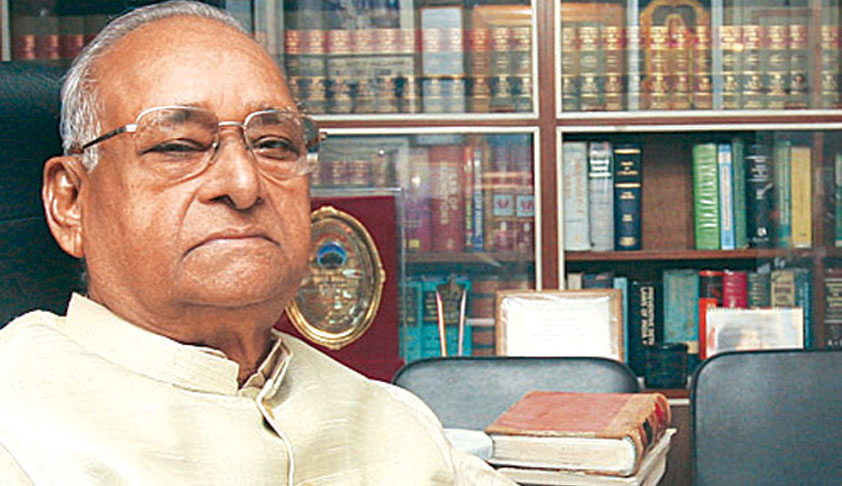The Magic Of Method
Santhosh Krishnan
25 Sept 2017 12:54 PM IST

My first conference with PP Rao as a briefing counsel was my first conference as a briefing counsel. I walked into his office, ready to impress, with a certitude of knowledge that can be forgiven only in the uninitiated. Post a three-hour conference, I was no longer thinking of the case but this man. He was unbelievable.
Imagine this: five Judges of the Supreme Court render an elaborate judgment, fully reasoned and very specific to you. It is the final word, the end of the road. What does one do? PP Rao convinced a Seven Judge Bench subsequently to not merely overrule but reverse itself. It is unthinkable for a Supreme Court to reverse itself, inter partes. The majority of the Seven Judges in Antulay euphemistically called it many things, but reversal it was. Antulay’s precedent was unknown then and unknown since. Through Rupa Hurra, the Court evaded its further application. They invented an altogether new jurisdiction to sidestep this precedent. PP Rao’s precedent. He was unbelievable.
The young have an attraction to magic. PP Rao was no magician. He was a man of method. Lawyering was no art but a science. His conferences ran in a parallel universe. The ordinary privations of time did not apply. Enquiry did not end with the brief. Effort did not end in doubt. He was built to wage a relentless war. He was unbelievable.
An inconvenient precedent was an invitation to found a new one. Concurrent judgments of Courts below were matters for dissection not dismay. You could walk in with the most exhaustive well prepared brief. Once it landed on his desk, it was raw material. Words were meaningless, unless meaningful. For every unnecessary adjective, Rao would open that hateful book, that weathered dictionary. He was unbelievable.
His contribution to Indian service law has exceeded that of any Judge. He has simply been involved with every significant case of that branch for the time he practised. It’s a branch of litigation hostile to excitement except among the individuals who cause it. By necessity, his perorations were tranquilizing. The method to success was anything but. He was unbelievable.
My last conference with Rao as a briefing counsel was no conference. I asked of his health casually. Like a minor detail to be fixed in my (always errant) list of dates, he told me he had suffered a heart attack the month before. Never to miss the subtler point, he seemed to think that the heart attack was heart-warming in its own way: “Isn’t it nice to have acquaintances transformed as friends, in times of need?”, he asked. He spoke of the caring concern of those around him at the time. He was unbelievable.
I obsess over the small stories of great men. As had become my wont over the years I knew him, I asked him of the status of his autobiography. With scarcely bound enthusiasm, I once again offered to ‘assist’ him in the project, if only to know the ‘small stories’. Being a better judge of ability and intentions, Rao smiled me away.
I didn’t meet him again. For two days before he died, I continually spoke of him to my wife and friends. The day he died, I woke up late, having worked a late night before. As first thing, I sent him a message: “when can I see you next?” It was the next day that I did, but not him.
There is little to eulogize of a man who does not need it. This man does not need a eulogy. He was the best of men in that way that men should be.
 Santhosh Krishnan is an Advocate on Record at Supreme Court of India.
Santhosh Krishnan is an Advocate on Record at Supreme Court of India.


